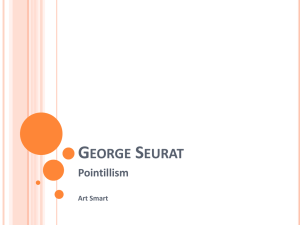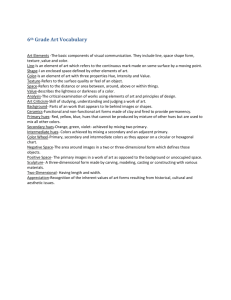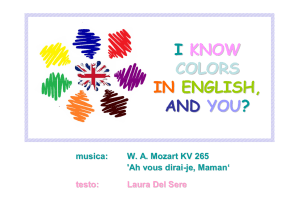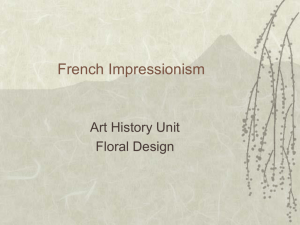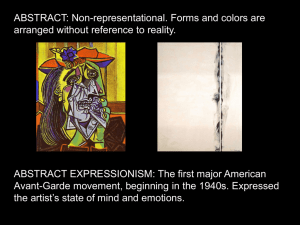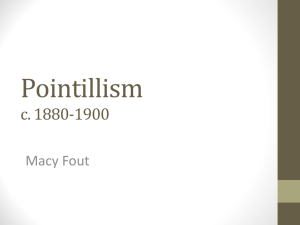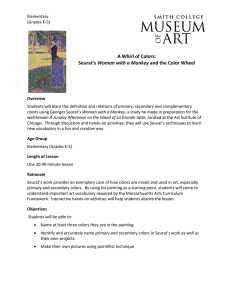Post Impressionism
advertisement
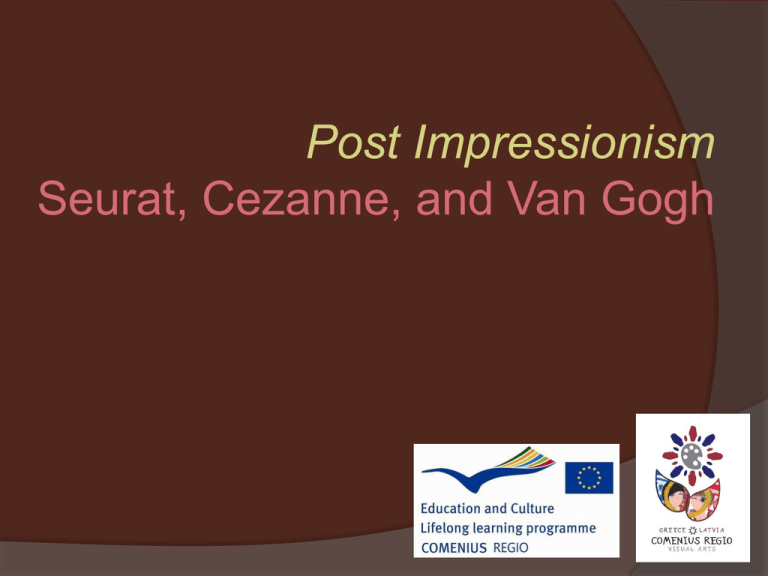
Post Impressionism Seurat, Cezanne, and Van Gogh Sunday in The Park, Seurat This painting has 3,456,000 dots! Seurat's famous "A Sunday in the Park on the Island of La Grande Jatte" (more commonly known as "Sunday in the Park"), which covered a wall (81 inches by 120 inches), took him two years to complete. He was known for amazing devotion and concentration. The dots in a pointillist painting can be as small as 1/16 of an inch in diameter! Based on these measurements, "Sunday in the Park" has approximately 3,456,000 dots! Georges Seurat (1859-1891) Georges Seurat was French painter who founded a painting style called pointillism. He began painting in the style of Impressionism but soon became more interested in scientific color theory. He is famous for using little dabs or points of pure bright color to paint. When viewed from a distance, the eye mixes the colors together What is Pointillism? Pointillism is a technique of painting in which a lot of tiny dots are combined to form a picture. The reason for doing pointillism instead of a picture with physical mixing is that, supposedly, physically mixing colors dulls them. Most of the painters of Seurat's time blended the colors to make a picture with a smoother feeling than Seurat's bright, dotty works. Can you see how Seurat painted in the style of pointillism through all the little dots? How do the colors mix? When two colors are right next to each other your eye mixes them in a process called, "optical mixing." Using optical mixing rather than physical mixing can create a brighter picture. By using primary colors optical mixing creates secondary colors. What are primary and secondary colors? Primary Colors The primary colors are red, blue and yellow. Primary colors cannot be made from other colors. Artists create secondary and intermediate colors by mixing primary pigments. Secondary Colors The secondary colors are green, orange and violet (purple). A secondary color is made by mixing two primary colors. Each secondary color is made from the two primary colors on either side of it in the color wheel. Seurat invented pointillism. What is Post-Impressionism? Post-Impressionism refers to an artistic style that followed Impressionism at the end of the 1800s. Most Post-Impressionist artists began as Impressionists, but then decided to try new ideas. Seurat was Post-Impressionist because he did not paint like artists before him, but invented the Poinillist style. Another artists, Vincent van Gogh wanted to add emotion and symbolic meaning to his art through color and line. His work often contained bold color and expressive brushstrokes! Van Gogh used color and bold brushstrokes in his Post Impressionist style. Paul Cezanne 1839-1906 Cezanne began painting outdoors in 1872 and exhibited with the Impressionists a few times before breaking with them in 1887. Cezanne focused on arrangements of constructed forms, geometric forms He believed that there was hidden order in nature seen in geometric forms. His paintings are abstract, yet objects within them are recognizable. Cezanne's revolutionary theories and work lead to Cubism. Notice the geometric forms painted in the brushstrokes. Do you see the abstraction in the trees? Cezanne Still Life with Apples and Oranges VOCABULARY Seurat Van Gogh Cezanne Pointillism Color Color Pattern Line Value Geometric Shape Space Space Setting Setting Emphasis Primary Color Community Overlap Secondary Color Foreground Foreground Middle ground Middle ground Background Background Post Impressionism Seurat, Cezanne, and Van Gogh
